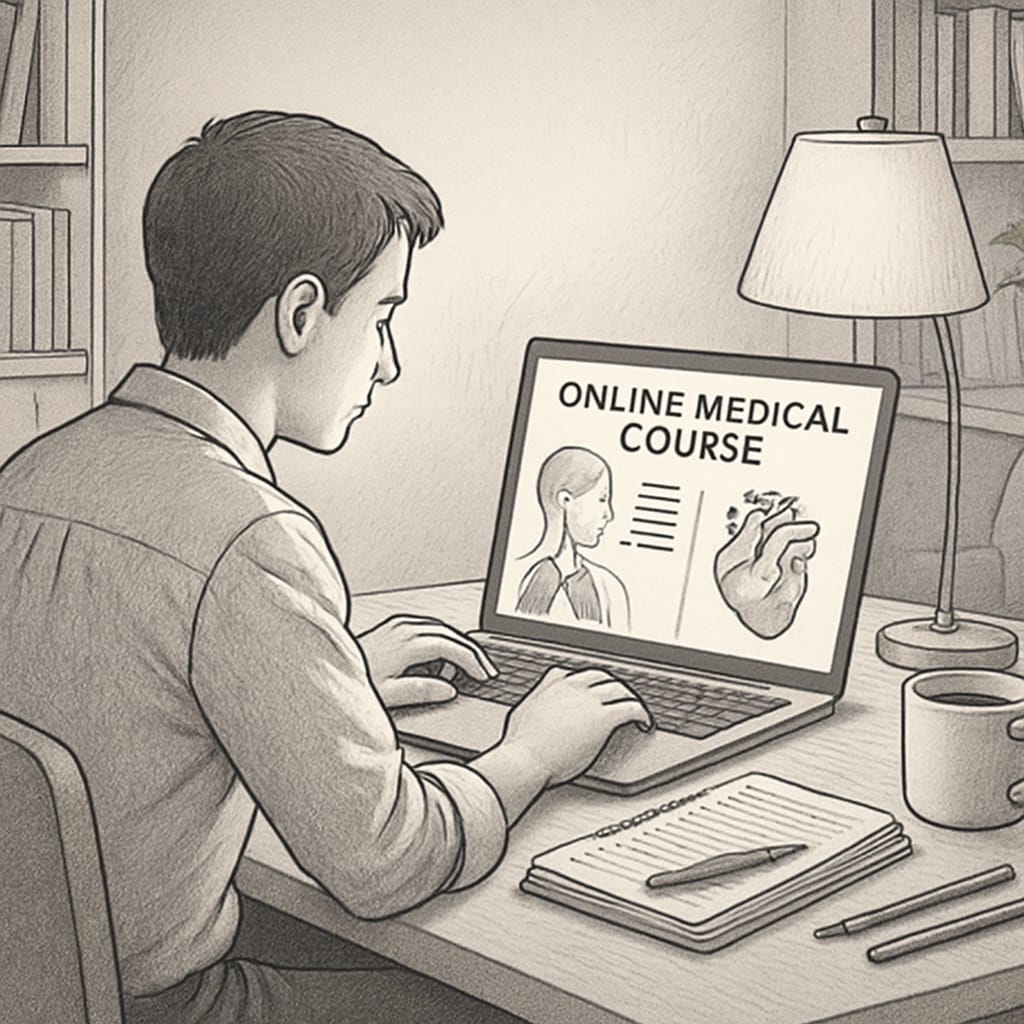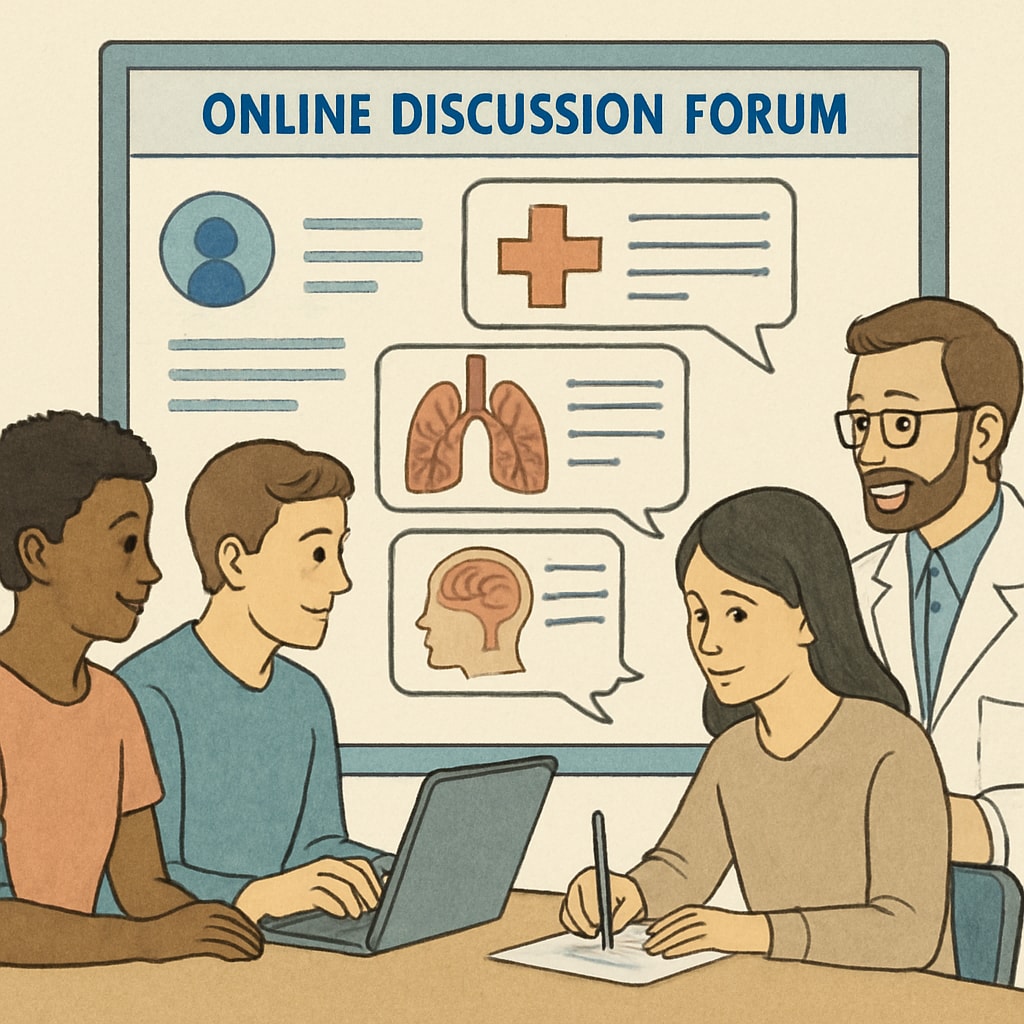In today’s world, health awareness is becoming increasingly important. As a result, many individuals without medical backgrounds are eager to explore medical education resources. While traditional medical education is designed for professionals, the rise of online courses and accessible tools has created opportunities for non-medical learners to deepen their understanding of health and medicine. This article explores how such individuals can find suitable resources and navigate their learning journey effectively.
Understanding the Need for Cross-Disciplinary Medical Education
Medical knowledge is no longer limited to practitioners. Professionals from diverse fields such as technology, education, and business are realizing the value of understanding basic medical concepts. For example, engineers working on healthcare technologies or educators creating health-related curriculums benefit greatly from foundational medical insights. However, the challenge lies in the fact that most traditional medical courses are tailored for aspiring physicians or nurses, leaving non-medical learners at a disadvantage.
Fortunately, the rise of digital education platforms has bridged this gap, offering tailored online courses that cater to non-medical professionals. These courses provide simplified yet comprehensive medical education, ensuring that learners can grasp essential concepts without needing an advanced scientific background.

Top Online Resources for Non-Medical Learners
The internet offers a plethora of learning platforms that make medical education accessible for everyone. Below are some of the most effective resources:
- Coursera and edX: These platforms offer courses from prestigious universities, ranging from basic human anatomy to public health.
- Khan Academy: Known for its beginner-friendly approach, it provides free lessons on biology and medical topics.
- Medscape: While primarily aimed at healthcare professionals, its articles and videos can be insightful for advanced learners.
- YouTube Channels: Channels such as Osmosis and Armando Hasudungan simplify complex concepts with engaging visuals.
These platforms allow learners to choose courses based on their level of expertise, ensuring that the content remains both accessible and relevant. For a comprehensive guide, check out resources like Medicine on Britannica.
How to Build a Personalized Learning Path
A key advantage of online learning is the ability to customize your experience. Here are some steps to create an effective learning path:
- Assess Your Goals: Are you looking to understand medical terminology, dive into a specific field like cardiology, or apply knowledge to your profession?
- Start with Basics: Begin with foundational courses on topics like human anatomy, physiology, and first aid.
- Use Interactive Tools: Platforms like VisualDX provide case-based learning, which is helpful for practical applications.
- Join Communities: Engage in forums like Reddit’s r/medicalschool or specialized groups on LinkedIn to discuss and exchange knowledge.
Additionally, consistency is vital. Allocate regular time for learning and complement courses with additional readings. For instance, Medicine on Wikipedia offers a well-organized overview of various topics.

Challenges and How to Overcome Them
While online courses have made medical education accessible, certain challenges remain:
- Overwhelming Jargon: Medical terms can be intimidating. Use glossaries or apps like MedTerms to simplify terminology.
- Lack of Hands-On Experience: Practical knowledge is limited in online settings. Consider attending workshops or local community health events.
- Time Management: Balancing learning with a busy schedule can be difficult. Break lessons into manageable chunks and set clear deadlines.
By addressing these challenges, learners can make the most out of their educational journey and gain confidence in applying their knowledge.
The Future of Accessible Medical Education
The field of medical education is evolving to meet the needs of a wider audience. Innovations like virtual reality (VR) simulations and artificial intelligence (AI)-driven tutors are making medical learning more interactive and personalized. As these technologies become mainstream, non-medical professionals will have even more tools at their disposal. This progress highlights the importance of breaking down traditional barriers and democratizing medical knowledge.
Ultimately, the goal is to ensure that everyone, regardless of their professional background, has the opportunity to understand and engage with medical topics. Whether you’re a teacher, technologist, or entrepreneur, the right resources can empower you to make informed decisions and contribute meaningfully to the healthcare ecosystem.


